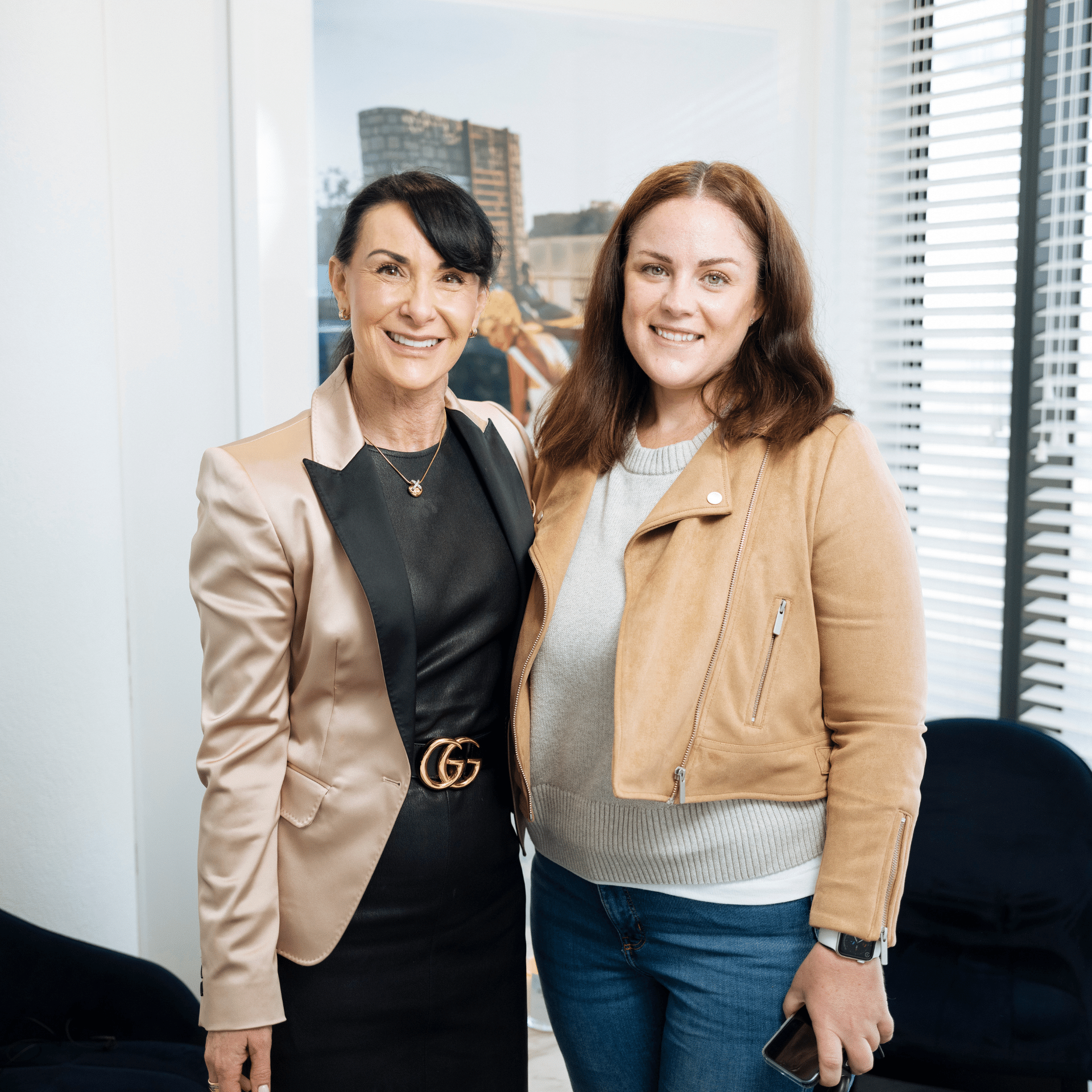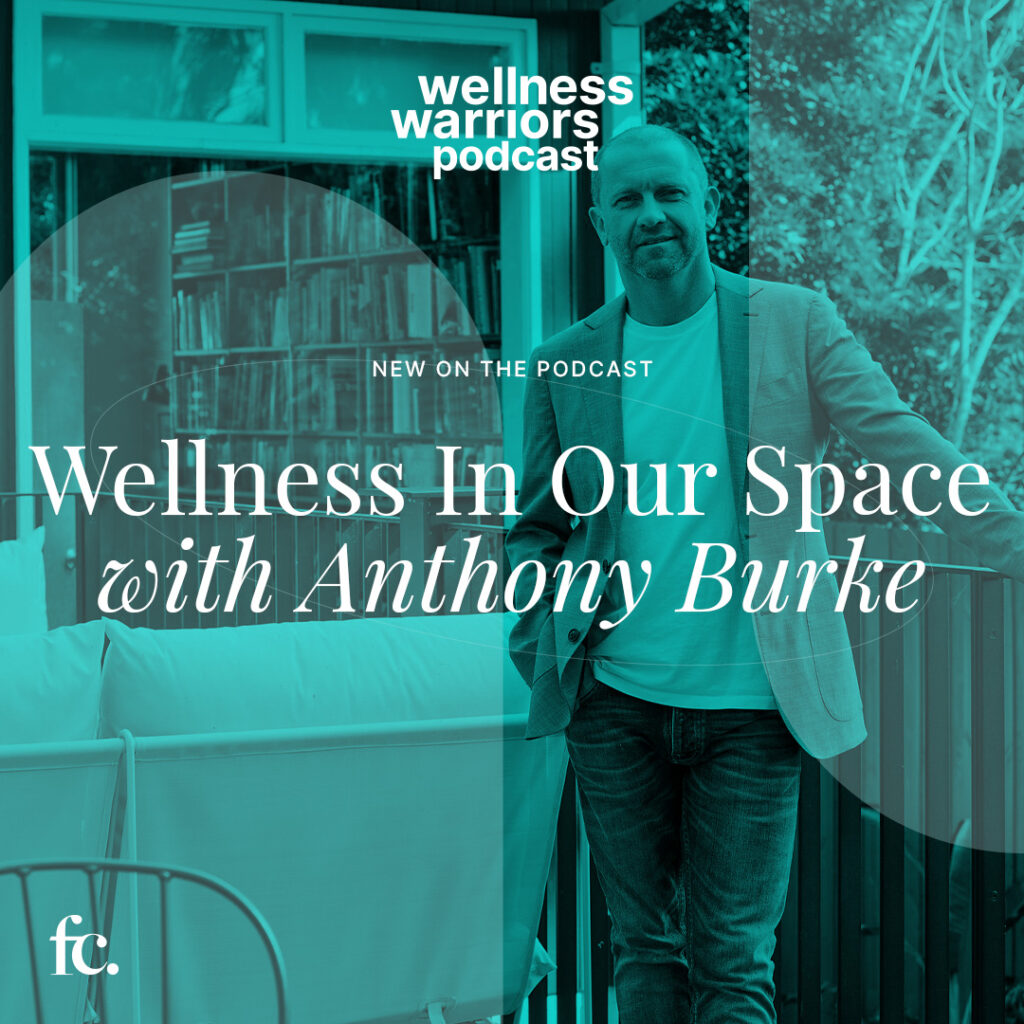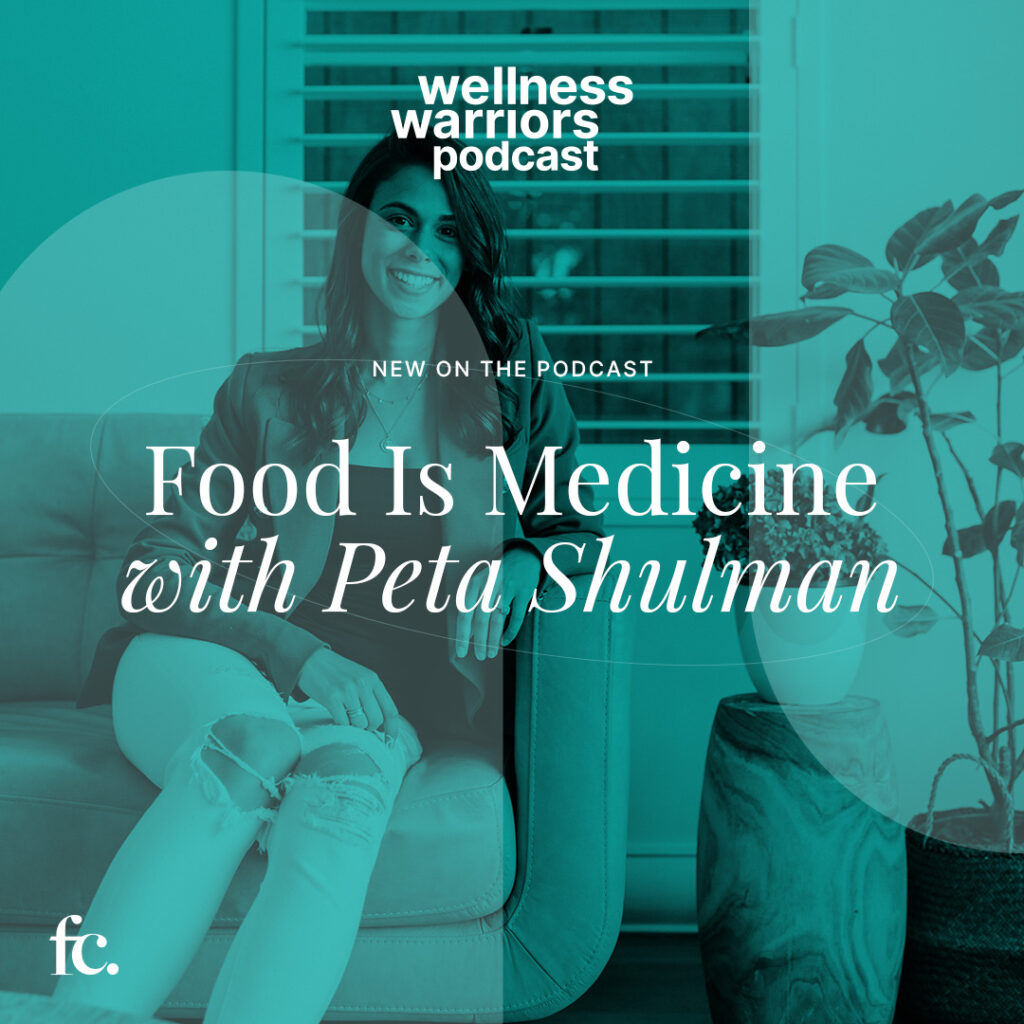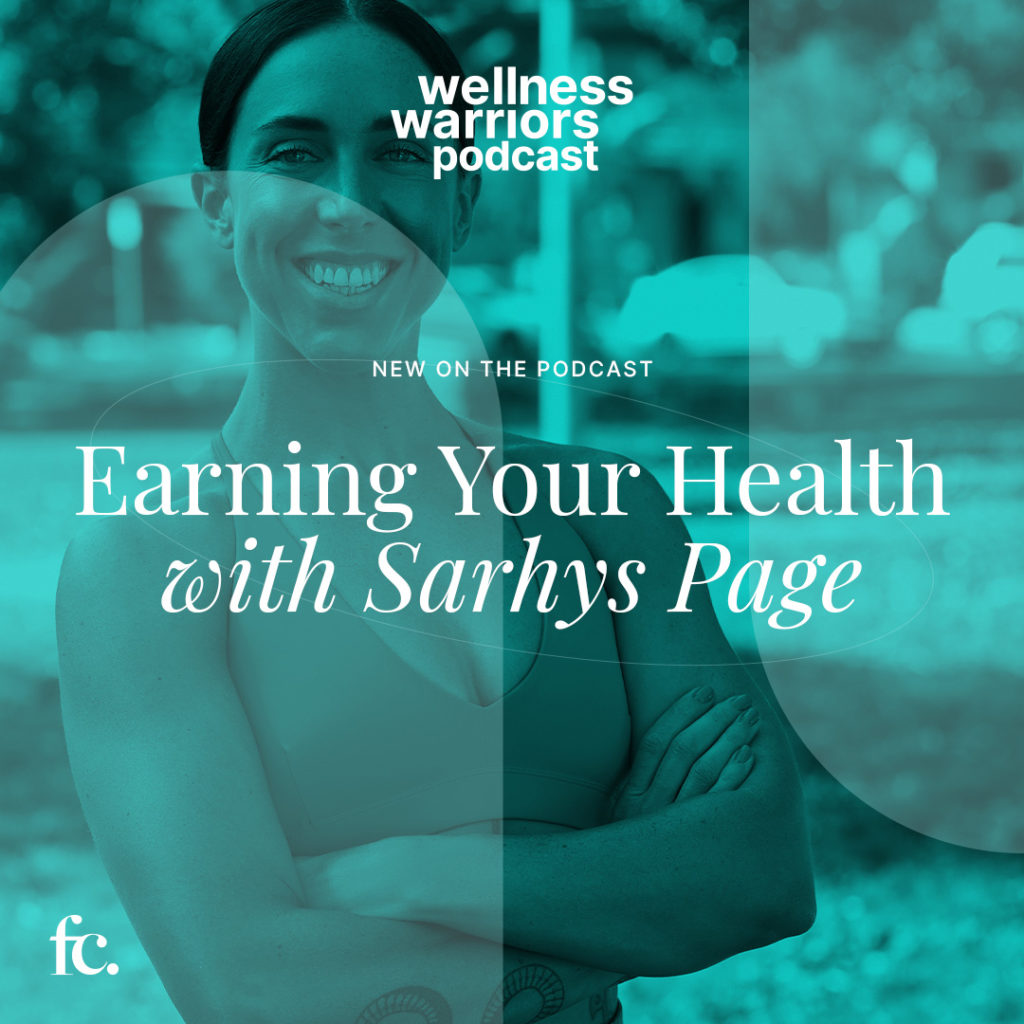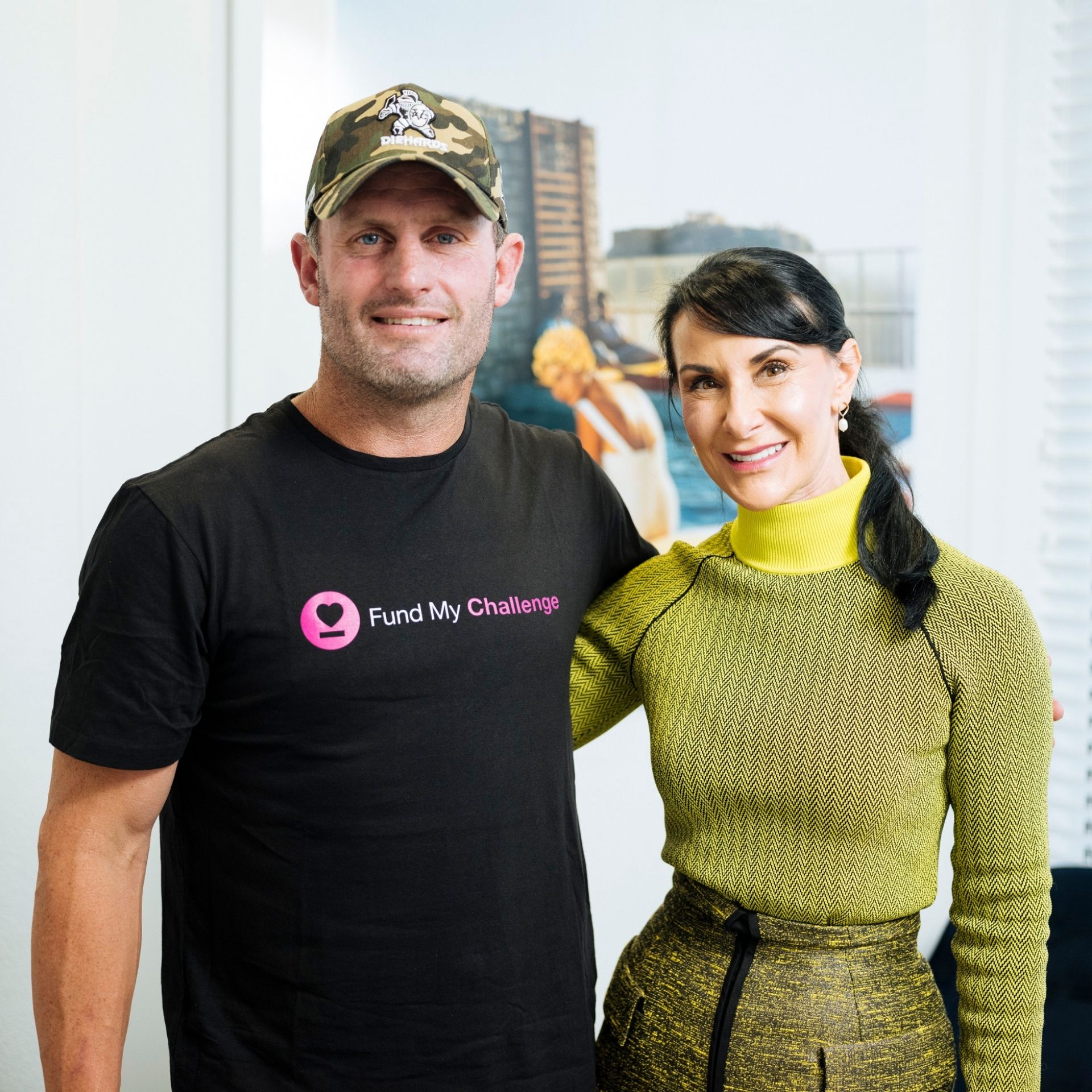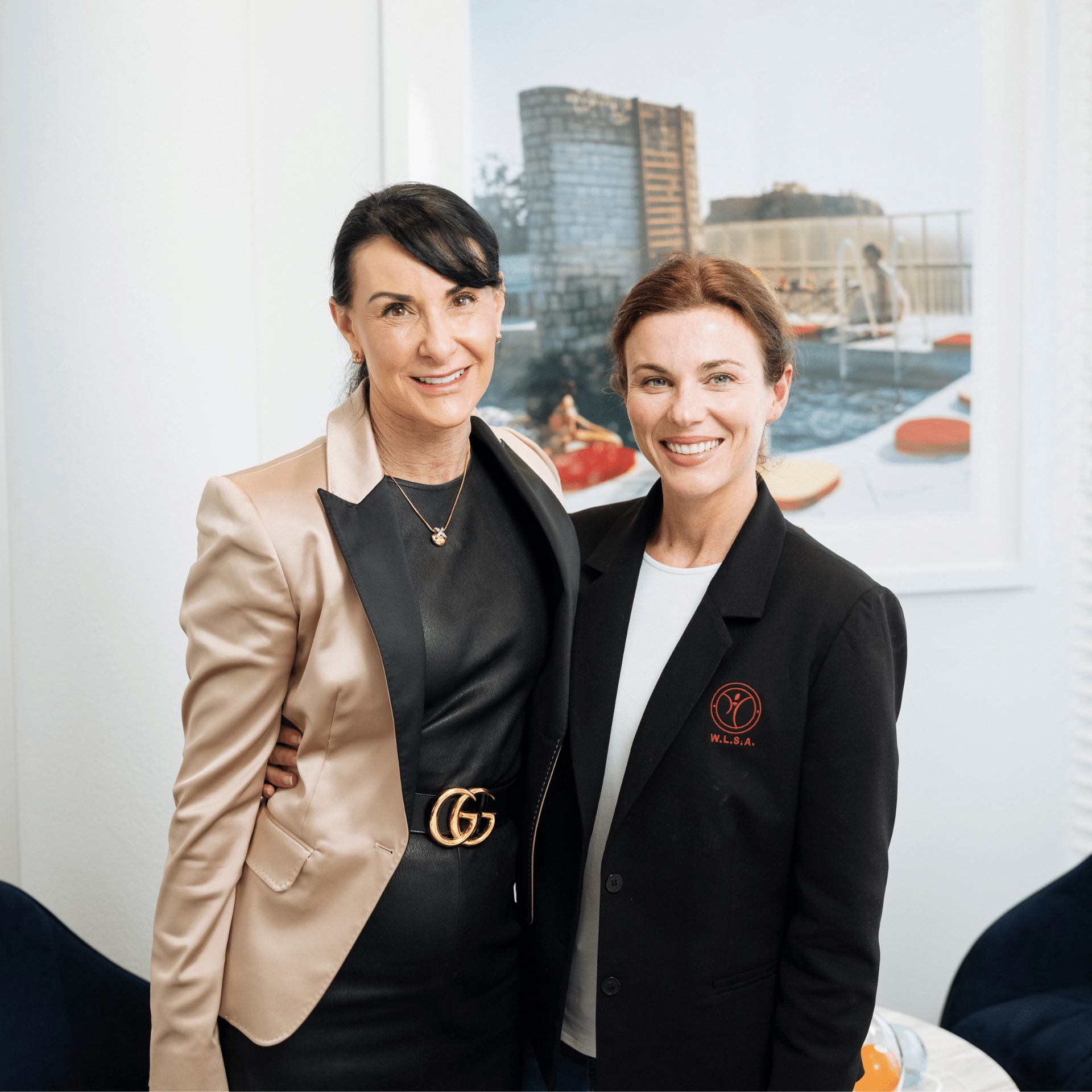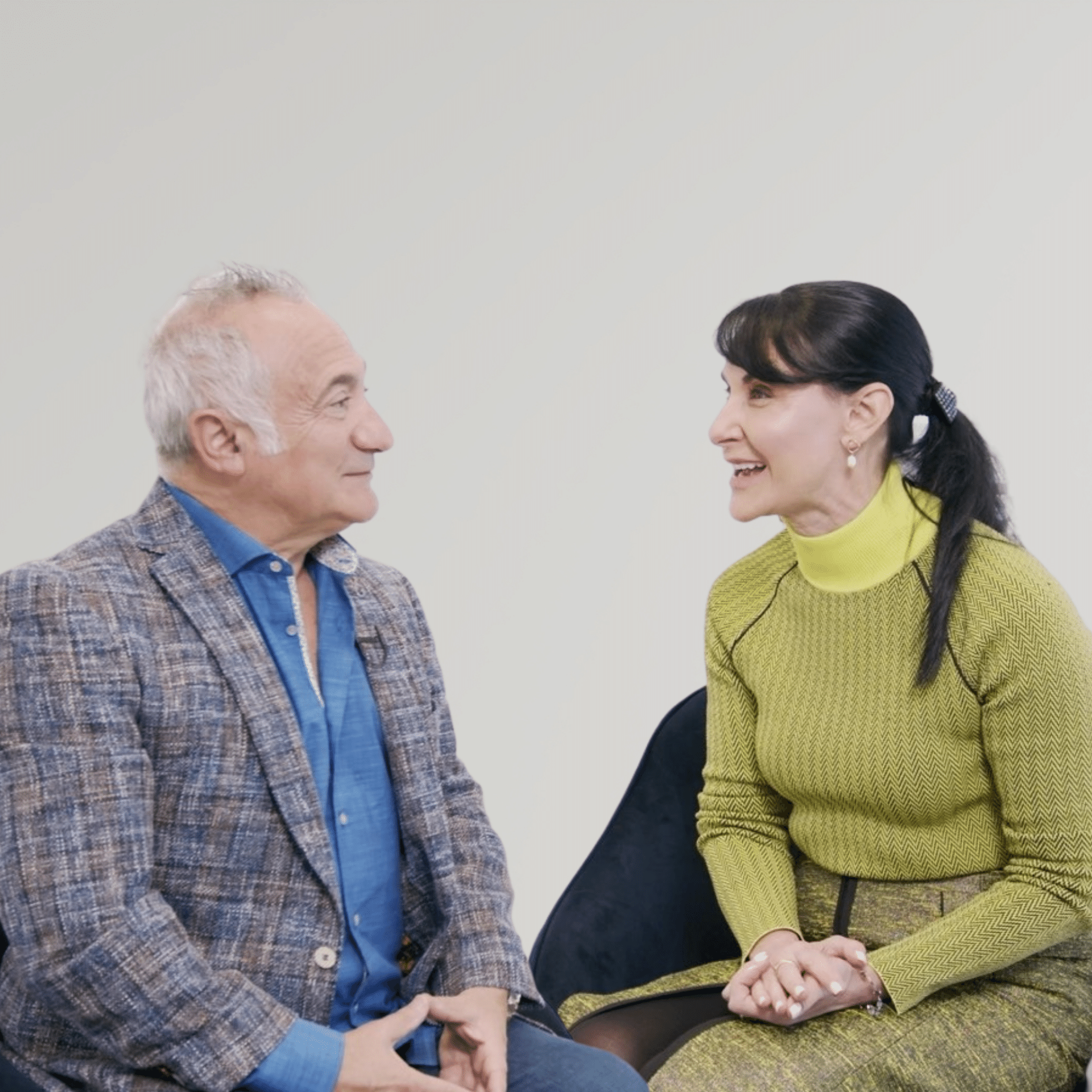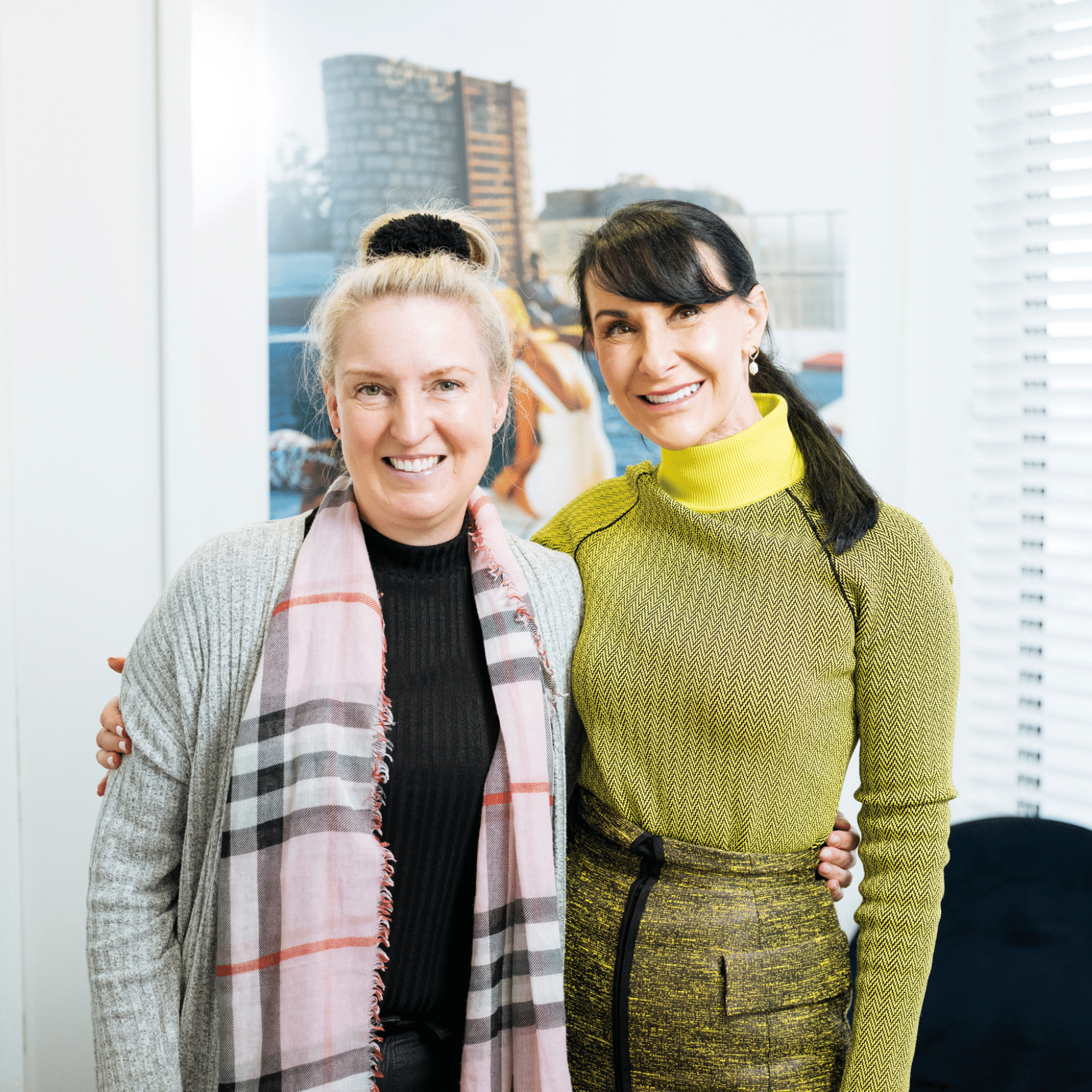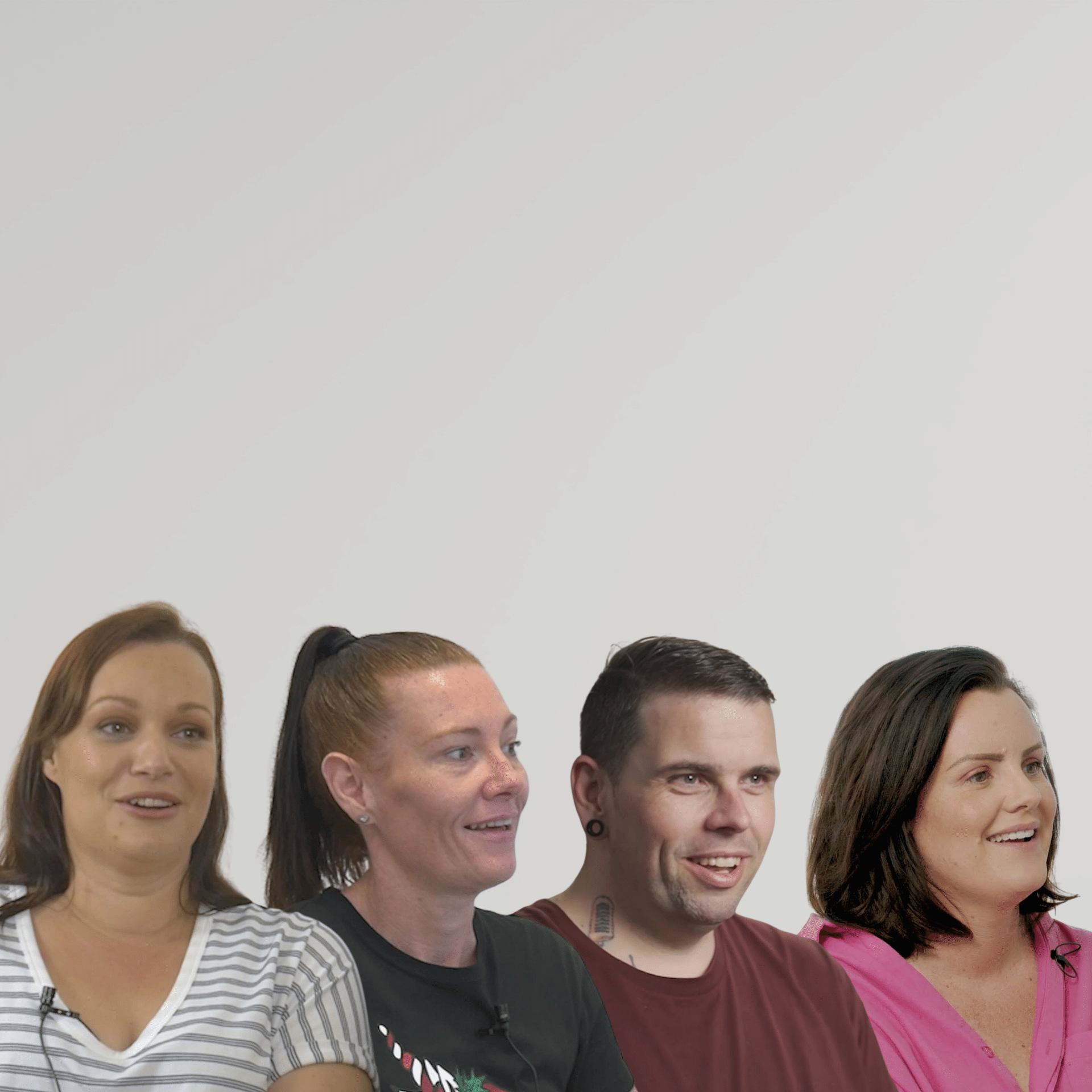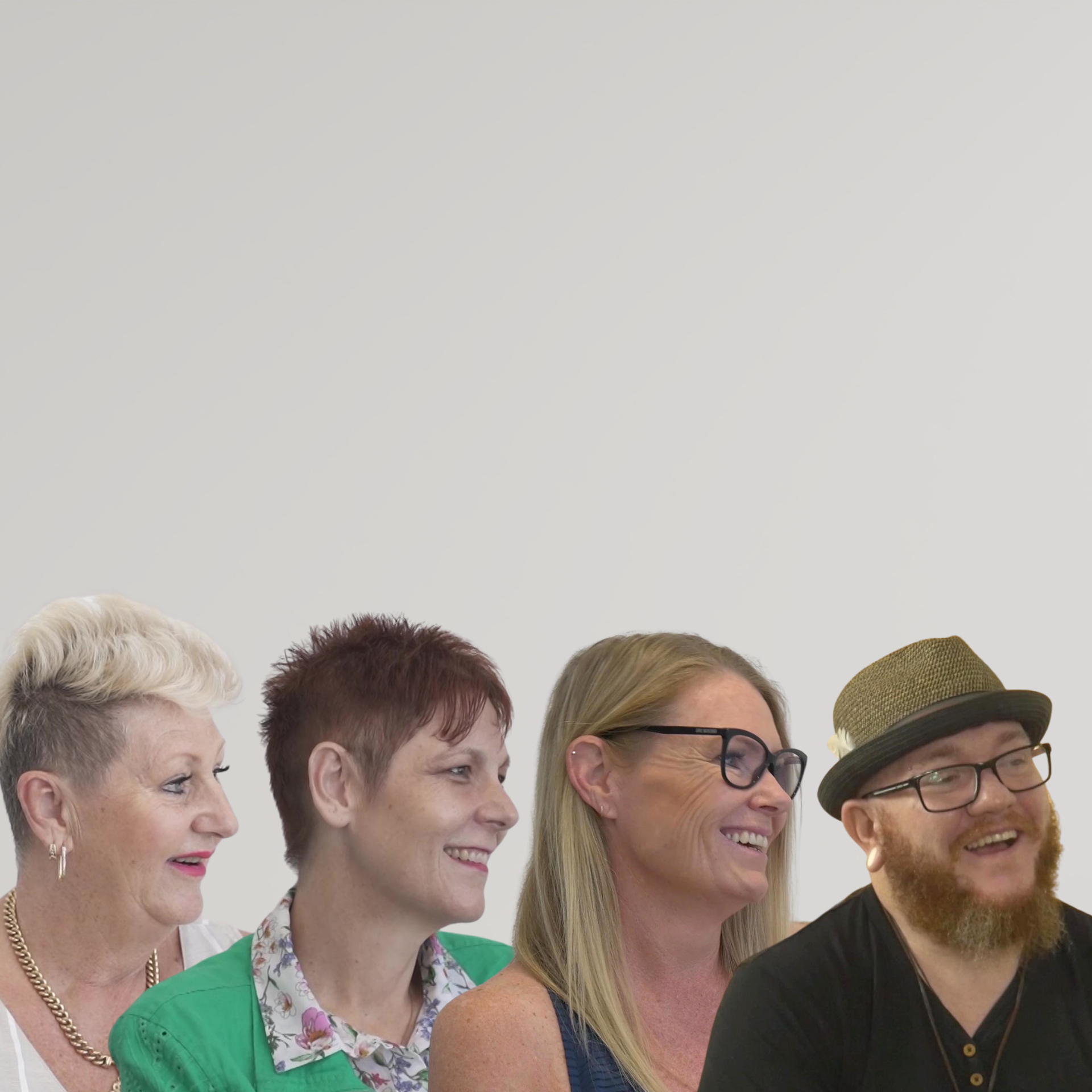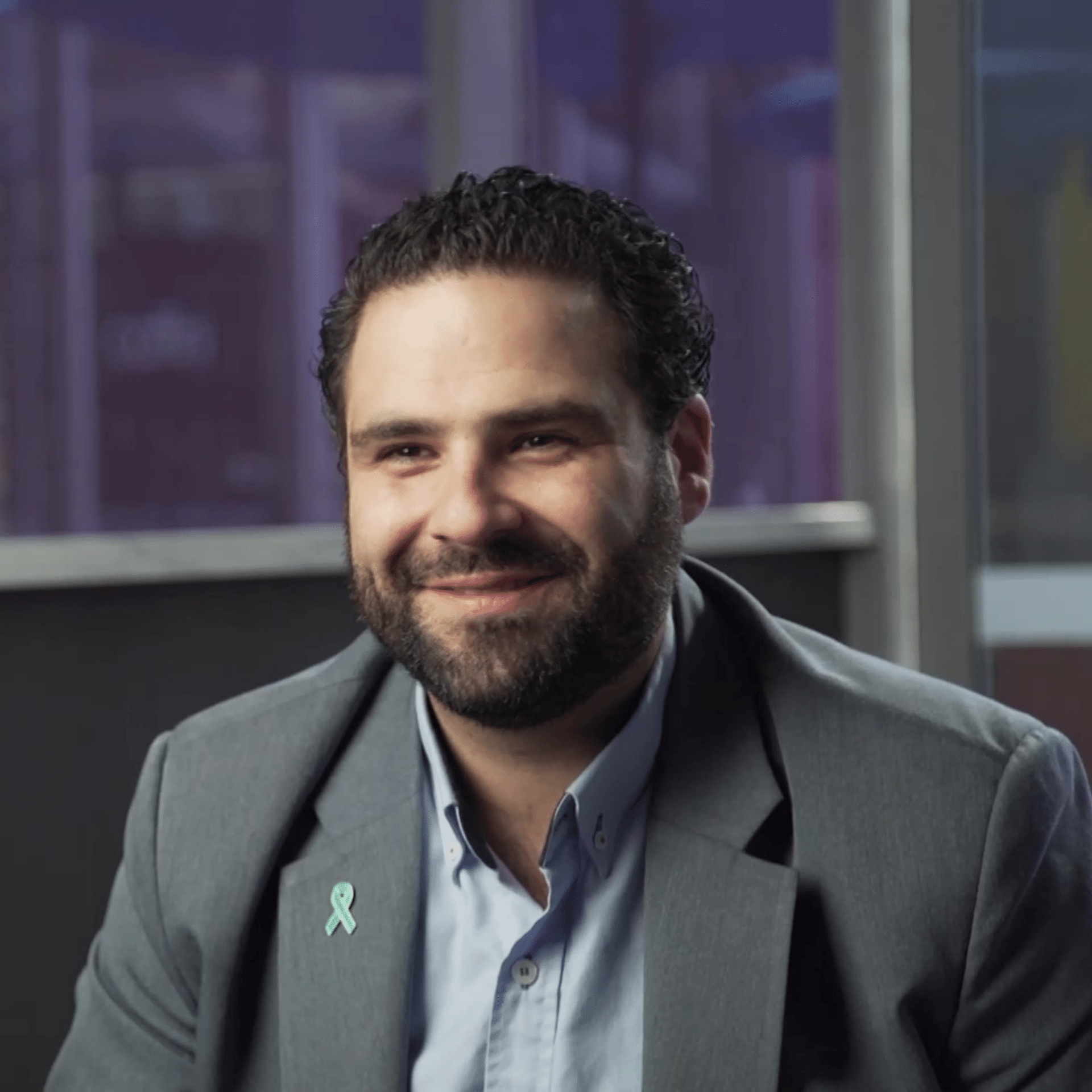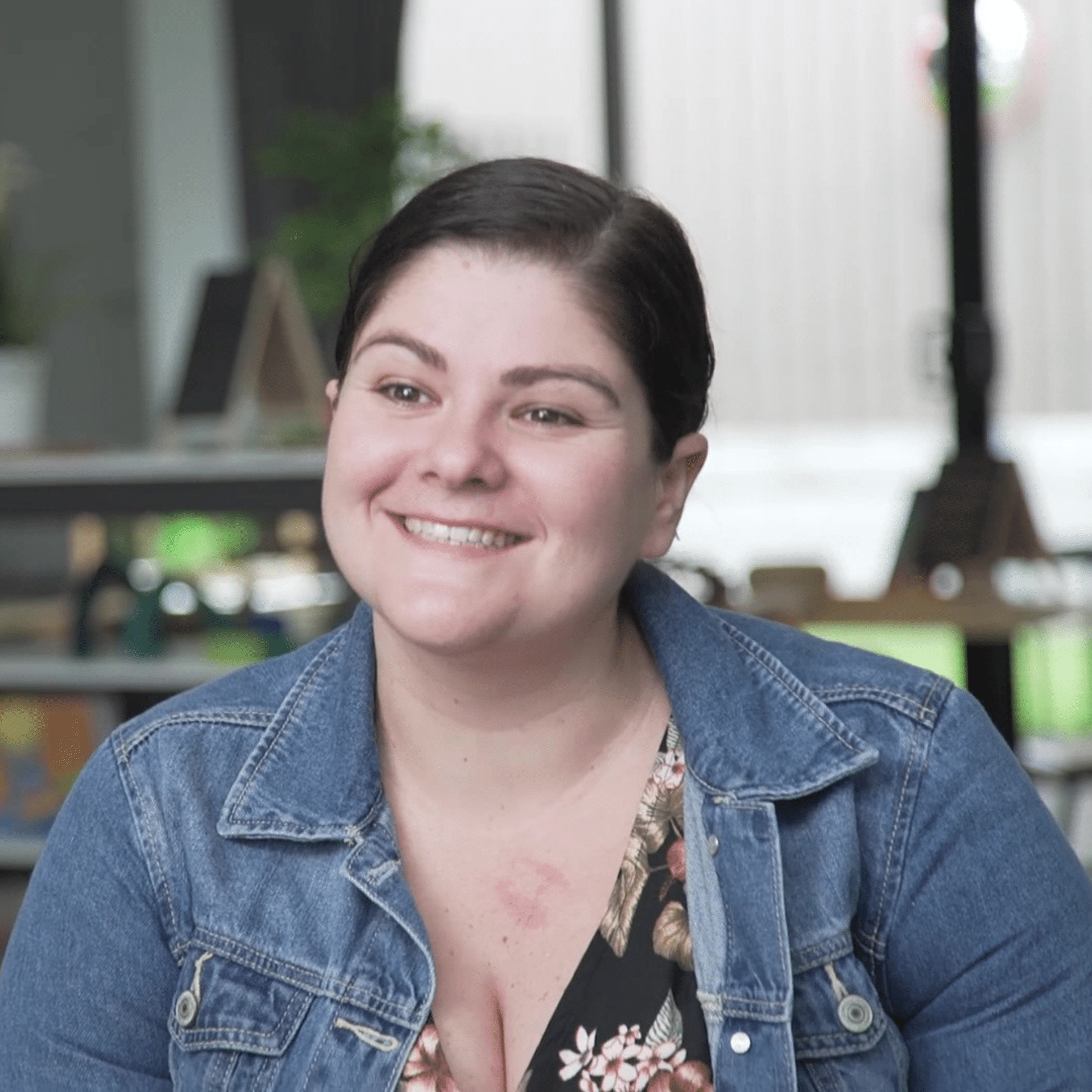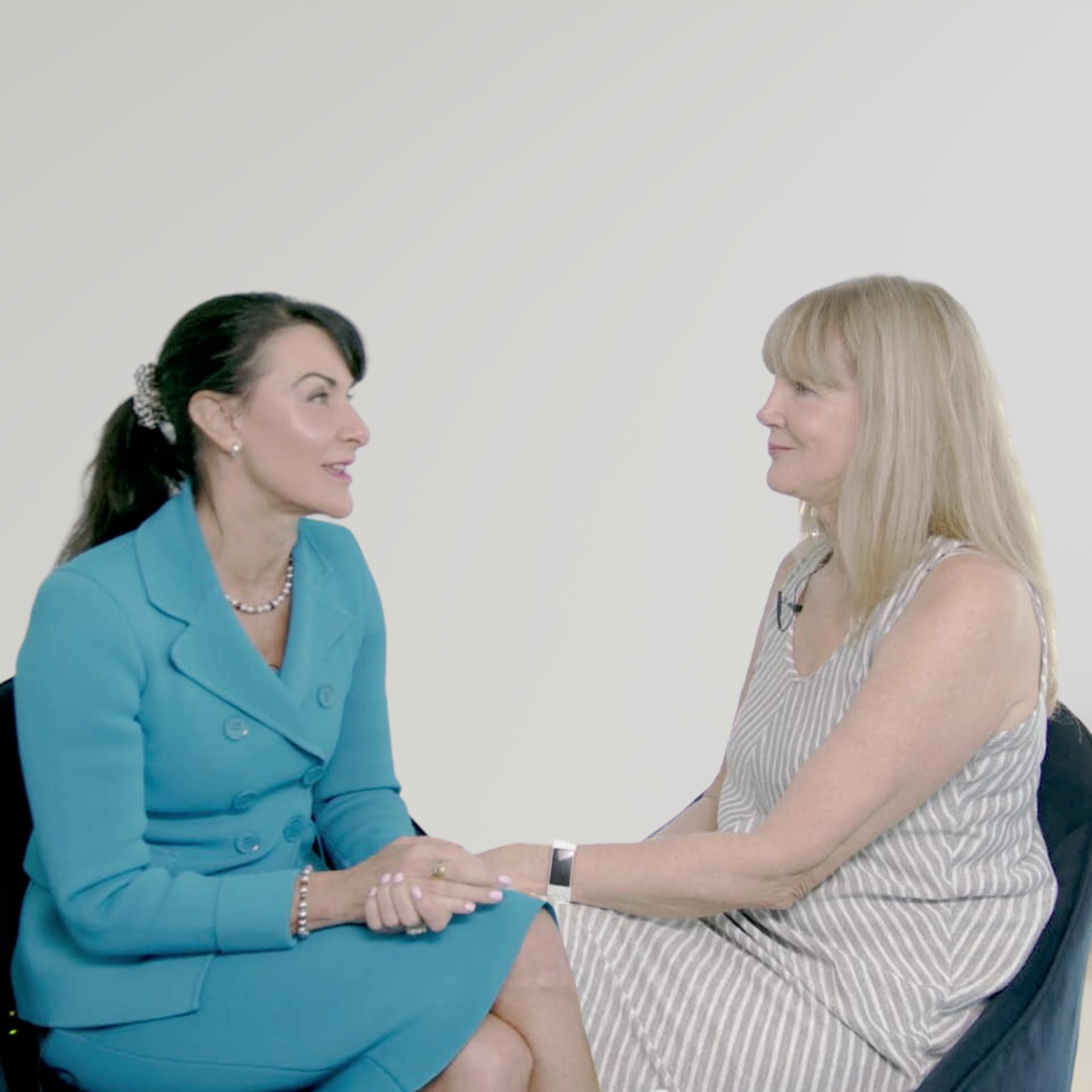EP36: Ex NRL Player Chris Walker’s Walk of a Lifetime
Ex NRL Player
Chris Walker's
Walk of a Lifetime
Former NRL rugby league player Chris Walker completed his 2.5million step expedition in July 2021, he walked from Cairns to the Gold Coast to raise money for charity and raised an amazing $200k in total. Chris covered a brutal 1900 kilometres over 71 days to raise awareness for charities: Beyond Blue, RizeUp Australia and the Alcohol and Drug Foundation. Demand for specialist services offered by all three charities has been at record levels over the past 18 months, due to the mental health challenges associated with the COVID-19 pandemic. Walker has partnered with the new charity fundraising platform Fund My Challenge, a challenge-based charity app that has been created to revolutionise the giving process.
Get to know the life of this incredible man, from his upbringing as one of four very competitive boys (they are all professional athletes), his journey as an NRL rugby player, what inspired his epic trek and where he plans to go next as continues to give back to the community.
For more inspiration, follow Chris Walker’s journey on Instagram @iamchriswalker
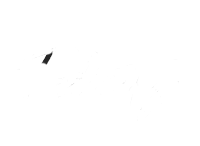
Show Notes:
00:50 – Growing up into a professional rugby family
Along with his three brothers, Chris followed in their family’s footsteps in pursuing professional rugby. Chris reminisces his childhood and how they were brought up, which have built a strong bond for the brothers.
11:07 – Retiring from Rugby to building a family
Since his retirement as a professional rugby player in 2011 to be with his family, Chris found himself advancing through many challenges using what he’d learned.
17:36: – Recipe for success from NRL field to all areas of life
After many years as a professional rugby player, Chris shares the key characteristics he believes will get us far, not only on the field but in all areas of life.
19:15 – Chris Walker’s Fund My Challenge making a real difference
Wanting to give back to Australian communities, Chris started Fund My Challenge, which connects people with charities and causes they are interested in raising funds for. Their goal is to ensure that every dollar raised is distributed effectively to the causes and make a real difference in people’s lives.
24:39 – The Cairns to Brisbane Walking Challenge, 1900km in 71 days
Chris finished his walk from Cairns to Brisbane as part of his Fund My Challenge initiative. He shares incredible stories through his course, the heartfelt moments, inspirations, the work of the team and the challenges he was facing to make to the finish line.
38:16 – The domino effects of kindness and encouragement
Passionately walking through his challenge to help the causes, Chris still felt depleted at times, wanted to give up. However, Chris shares felt uplifted seeing the words of encouragement he received from the community online and offline. Even those beeps from random cars passing by had helped him power through the journey.
48:33 – What wellness means to Chris Walker
Wellness means happiness for Chris. It’s about being infectious with your attitude and being upbeat and happy.
EP35: Not All Balloons Are Created Equal, Says Bariatric Nurse Casey Quinn.
Not All Balloons
Are Created Equal, Says
Bariatric Nurse Casey Quinn.
In this digital age, there is an abundance of resources and options when it comes to weight loss and treating obesity. WeightLoss Solutions Australia’s bariatric nurse Casey Quinn breaks down the surgical and non-surgical options available for lasting and sustainable results. Casey shares her love of a patient’s transformation and the importance of a long term bariatric intervention as a proven successful lifestyle modification.
Casey prides herself on helping patients choose the right solution to achieve their weight loss goals by connecting emotionally with people so they feel understood, valued and supported, then evaluating the way they behave so she can suggest the best procedure accordingly.
In this episode, Casey explains the various intra-gastric balloons currently on the market because not all balloons are created equal. There are so many different procedures now ranging from Orbera to Spatz and the new and exciting Elipse Balloon which is a real game changer in the field of bariatrics this year. Casey describes this new approach to weight loss in an honest and easy manner, to help us better understand the opportunity to create a healthier life through the revolutionary Elipse Balloon Program.
If sustainable weight loss is your next journey, visit www.wlsa.com.au/procedures/elipse-balloon/ to find out more.

Show Notes:
01:12 – The privilege of working with a bariatric patient population
As a bariatric nurse, Casey loves witnessing amazing outcomes, seeing her patients’ lives transformed for the better. It is a privilege to be a part of their journey and connect with them on all levels.
03:58 – The Orbera balloon weight loss procedure
Casey explains the long-standing procedure, Orbera balloon, on offer at Weightloss Solution Australia since 2007. This device serves those looking to lose more weight as they can choose to have the ballon in for as long as 12 months.
7:09 – The flexible Spatz balloon for weight management
Adjustable balloon, Spatz device is another alternative Casey would suggest to patients for volume flexibility.
08:41 – Realism, commitment and support for sustainable weight loss
Nurse Casey would look at the patient’s behaviour and history to identify the right solution for them. Casey stresses the importance of being realistic while being committed to the process, which there will be supports from the team along the way to help patients achieve sustainable outcomes.
14:29 – The game-changer in bariatrics – Elipse balloon
The newest technology for bariatric patients is introduced. Felicity and Casey discuss the advantages of the Elipse balloon as there’s no endoscopy and no anesthetic involved in the procedure.
21:56 – Dietitians and psychologists are critical throughout the weight loss journey
The dietitians and psychologists at Weightloss Solution Australia work closely with the patients, even through Telehealth. Felicity and Casey believe the patients must have correct guidance to achieve a sustainable diet. Casey shares that the psychologists at the clinic are specialised in weight and body image and issues around food, assisting patients in making progress emotionally.
24:50 – The right weight loss intervention for the right circumstances
At WLSA, the team ensures that the patients are well-informed about the procedures available and the right intervention for their circumstances.
31:01 – Is Medical weight loss an alternative solution or combination of therapy?
Casey explains the pharmacological treatment that patients can choose to include with other procedures along the process.
33:06 – Achieving flow state in career and life
As a mum, making time for herself can be difficult. However, having a career that fulfils and energises her every day has helped her. Casey focuses on being healthy and authentic for things to flow in her life.
35:36 – What does wellness means to Casey Quinn?
To Casey, wellness means feeling excited about life, starting the day feeling excited, just feeling open to everything coming your way. And you can only feel that way if you’re not in pain if you’re not thinking about your body, you know, like if you just kind of fresh moving forward. So when her body is a healthy vessel, she can do that. And when it’s not, she notices the difference.
EP34: Pearls of Wisdom from Author & Prosperity Activist Pat Mesiti
Pearls of Wisdom from Author & Prosperity Activist Pat Mesiti
Prosperity effects all aspects of life and not just money. Father, grandfather, best selling author and speaker Pat Mesiti shares his sought after advice on how to achieve overall prosperity. In this episode, Pat covers everything from self-love and self-worth, the art of giving, making the most of your failures and how to pivot in a post COVID-19 world.
Most inspiring, Pat gives some very useful advice on how we can help the youth, not just as parents but as leaders. We need to give the youth hope and inspiration by having some absolutes in their life and creating traditions, which helps them stay connected with us and disconnected to what’s happening out there.
A gift for our listening, Pat has graciously given an audio copy of his book “Unbreakable” here: https://mesiti.com/ub/.

Show Notes:
02:46 – The process of wealth: “Generosity breeds abundance.”
Pat elaborates his worldview, deriving from the universal law that something has to leave from your hand to return to your life. He also stresses that the reality of your wealth comes from your mindset.
07:58 – Pat Mesiti’s journey of rebuilding through failures.
A boy from Bankstown, Pat has faith in his study in prosperity to help others get back on track. He shares how he also applied the principles of life which he had learned to rebuild himself from his failures. Pat believes everyone has to experience failures, but how we deal with them will make a difference. He shares encouraging tips on how to move forward and learn from them.
14:11 – Turn fears into opportunities to drive forward through COVID.
To Pat, fear is a disempowering entity that deprives people. He empowers us with stories of his students to turn things around, create opportunities for financial freedom for ourselves in this information age.
19:07 – How to have a prosperous mentality in everything you do.
Pat expresses that it’s important to have free thinking and self-beliefs to create the life you want. Here, Felicity and Pat share their thoughts on the correlation between people’s health and their wealth’s health.
22:59 – Everything starts from your mind.
Pat wants people to realise that their mind is their greatest asset. He stresses that it has nothing to do with your education through his personal story, how his mindset helped him write his books.
29:21 – Creating the vision of compass for our youths.
As a grandfather and someone who has a strong connection with youth in his work, Pat outlines the struggles of the younger generations with encouragement on how we can help them create the vision for their future and restore hope.
39:00 – How can we restore faith for the future?
Pat shares that he found faith through a divine encounter that powerfully changed his life. He encourages people that whatever they believe in, just believe it, because faith is not just a moment, but also a process through life.
41:42 – What wellness means to Pat Mesiti.
To him, wellness means wholeness in his soul first, then in his mind and body, and in his relationships.
EP33: Juggling Life as a Breakfast Radio Presenter and Mum of Two
Juggling Life As A
Breakfast Radio Presenter
and Mum of Two
Olivia Scott is a well known morning radio presenter at Hot Tomato, a radio station on the Gold Coast, Australia. In this open and honest interview, Olivia shares how she doesn’t hold back on life being a mother of two as well as a morning radio presenter. We delve into how her career started, her history of travelling and working in regional areas, then starting a family and making her way back to living on the beautiful Gold Coast.
We all love radio as it’s instant coverage from headline news to celebrity gossips, which makes for a great medium. Olivia shares how she stay connected with the community through events and fundraising but most importantly how she manages a healthy work life balance during a pandemic and Queensland lockdowns.
Tune in to Olivia Scott on Hot Tomato 102.9fm between 9am to 12pm.
https://www.mygc.com.au/1029-hot-tomato/

Show Notes:
01:06 – Tell me all about what was it that first took you into radio?
Olivia had close connections and involvement within the radio station community from a very young age, which sparked her keen interest in joining the industry. Her profession took her around the Australian regions before she would be where she is today.
05:19 – Do you find that you need to change your approach in terms of where you’ve lived and worked in the different regional radio stations?
As a communicator, Olivia finds it exciting to get to know people from different places and learn to be relatable to them.
12:18 – How have you coped with juggling a life of being a radio career person and managing, raising two children, a home, a family, a husband, how’s that juggle looked for you?
For Olivia personally, she has been handling it quite well. Through flexibility at work and her support system at home, have helped her navigate through her busy schedule.
17:35 – So tell me a little bit about your health and wellbeing and your own personal philosophy on wellness. And what do you do to look after yourself?
Olivia shares her experience trying to quit smoking for a very long time and her experience in hypnotising with Felicity and Dr Drew had changed her life. One of the main reasons for her to quit was for her kids.
21:36 – So tell me about your approach to wellness and what does it mean to you and what do you do on a daily basis?
Olivia aims to have an active lifestyle as well as having a balanced diet that still allows her to enjoy everything else in life.
23:09 – What’s next for you? What are you most looking forward to over the next five years? What’s your plan?
Olivia loves to travel. She would love to travel overseas more in the future but now to keep rediscovering Queensland and places in Australia.
25:12 – Working 6 days a week is a lot. What’s your favourite thing to do on that one day a week that you don’t work?
Having quality time with family is important for Olivia to keep her going through the long work week.
26:35 – What does wellness mean to you?
For Olivia, health and wellness is everything.
EP32: #YesYouCan – Warriors Winning Streak Part 2
This uplifting episode encapsulates the winning moments of our warriors Trish Bridgemand, Richard Smedley, Melinda Adams, Fiona Swadling, Steve Ball and Vicky Bonner. If you are looking for inspiration and a positive perspective on LIFE, tune in to hear the very moment these legends experience joy, satisfaction, confidence and more.
Continue readingEP31: #YesYouCan – Warriors Winning Streak Part 1
This uplifting episode encapsulates the winning moments of our warriors Trish Bridgemand, Richard Smedley, Melinda Adams, Fiona Swadling, Steve Ball and Vicky Bonner. If you are looking for inspiration and a positive perspective on LIFE, tune in to hear the very moment these legends experience joy, satisfaction, confidence and more.
Continue readingEP30: The Catalyst For Change That Ended Andrew Morello’s Battle With Obesity
In this interview, Andrew Morello (winner of The Apprentice Australia and Head of Business at The Entourage) revealed all about the weight gain and weight loss he has experienced, many of which are issues that most people still lack understanding in our modern-day lifestyle, including the perspective of life between money, time and health, particularly for men. Denial is the most common factor as to why most men do not do anything about their health until they get sick.
Continue readingEP29: A Childcare Industry High Flyer Modified Her Childhood Bad Habits
In this podcast, Priscilla Farry looks back on her childhood, the bad eating habits she formed in high school, which subsequently impacted her weight in her adult life. Priscilla talks about gaining weight post-pregnancy with her first child, and not being able to maintain a healthy lifestyle with a busy and demanding job within the childcare industry.
Continue readingEP28: Curing Disease Through Nutrition with Best Selling Author Dr Karen Coates
Curing Disease Through Nutrition with Best Selling Author
Dr Karen Coates
Dr Karen Coates is an internationally respected integrative medical doctor and naturopathic physician. As a medical advisor to some of Australia’s highest-profile celebrities and elite athletes, Dr Coates has over 30 years of experience in the health arena, with degrees in Medicine and Surgery, postgraduate qualifications in Obstetrics, Nutritional, and Environment Medicine.
An advocate for self-responsibility in health, she has a passion for teaching and a gift for explaining complex health concepts in easy-to-understand terminology, which she goes into detail in this episode. Dr Coates covered the five foundational pillars of wellbeing which include nourishment, movement, stress management, sleep and minimising toxins. Her work now aims to provide longterm solutions instead of fad diets to cure Hashimoto disease, type 2 diabetes, obesity, heart disease, cancer, sleep apnoea and stress.
Dr Coates has a daughter with polycystic ovary syndrome (PCOS). It was their journey together that became the foundation of her unique management plans for women with PCOS. This inspired her to write the bestselling women’s health book ‘Embracing the Warrior’ – an essential guide for women and has been teaching women proven paths to PCOS wellness.
Get to know more about your health through DNA and let Dr Coates provide the best solutions to optimal wellness here https://www.drkaren.com.au/shop.

Show Notes:
Question – At what point in your career did you start to think about things that might not have been within the traditional scope of the normal general practitioner’s lifestyle?
1:10 – I had a couple of incidents with patients where my mind was open to the possibility that there were other ways of treating them. One woman had symptoms of bladder urgency, and I thought she had a urinary tract infection. Turns out I was right but when I contacted her to come to pick up her prescriptions, there was a pause on the end of the line. She took the courage to say no, and that she would look into alternative options. She decided to see a Chinese herbalist and when her results came back after a few weeks, her urinary track was completely cleared. For someone with a medical mind, it really shook me. That’s when I contacted her Chinese herbalist to start the conversation, which then lasted for years as I studied alternative options to prescribed medication.
Question – When a lot of people think integrative medicine, what does that actually mean?
5:02 – Integrative medicine is choosing the best of both worlds, but as a medical doctor, my decisions are always based on facts. For example, when treating mild, to moderate depression, often I will prescribe medical marijuana rather than prescription medicine, which has the same results with less harm. With saying that though, there are some circumstances you have to bypass the natural and go straight to the medicine because it’s the right decision for that particular clinical scenario in that person.
Felicity – Can those things sometimes work in combination?
6:51 – Sometimes interactive doctors forget about basic biochemistry, both naturopaths and doctors should know when is the right time to take prescribed medication and how they’ll interact with one another. At the end of the day, let’s say you’re zinc, iron or vitamin D deficient, you’re unable to make these hormones that support mood and reduce anxiety, so if you’re not fuelling your body with the right foods, you’re not going to get the optimal results through prescribed medication and natural medicine.
Question – What do you think about using things like IV nutrient therapies? Is that something that you feel is relevant and worth exploring further?
9:15 – When looking at someone who is struggling to maintain their body weight, often it’s not a case of being malnourished, but they are micro malnourished, so they are unable to absorb the sufficient trace minerals to support everything their body needs. IV nutrient therapy and oral supplements are great ways to fill in those nutritional gaps when you’re working on diet and nutrition, whether the goal is weight loss or optimal wellness.
Question – What other kinds of nutrition can we look at to help someone stabilise their mood?
10:30 – For women, most commonly we will look into iron deficiency especially with heavy periods. Another one to look at is magnesium deficiency, when checking a patients blood test, I will look at their red cell magnesium results, as the red cells are where the action happens in immune support for the body. IV nutrient therapy is a great way to have those nutrients go directly into the bloodstream, giving your body a kickstart for the biochemical pathways, from there, once the body starts to feel well, it can give you the motivation to continue your journey towards a healthier you. When someone is overweight, their bodies are inflamed, and that will actually chew up most of those micronutrients, so when trying to lose weight, you’re food intake is restricted, so IV nutrient therapy is a great way for the body to get those micronutrients, minerals and vitamins we need.
Question – Why was that such an important element and why should we think about selenium as being important in our diet?
12:22 – Most of the soils in Australia are selenium deficient, and also boron deficient and lacking a few other little trace minerals, but selenium from the point of view of weight management is a really important player for thyroid support. When it comes to weight management, selenium and vitamin D are major players, not only do they support good health, but also the thyroid which is your metabolic system.
Question – What do you think has given rise to such an increase in all of these thyroid and metabolic type conditions?
13:39 – There is no evidence yet to answer that question, but one thing I do know for sure is that, if we’re not nourishing the thyroid cells in our bodies, our immune system is more likely to be attracted to an unhealthy thyroid cell tag, which attracts our immune system to that cell in order to get rid of it. We currently have a big issue in our society when it comes to auto-immune issues, like Hashimoto’s and inflation of the thyroid, these issues prevent the thyroid from producing any of the hormones that we need, something I have seen more commonly in women over the past decade. At the end of the day it all comes down to diet, especially for those on a restricted diet, paleo for example, over time you will become deficient in those macro and micronutrients like iodine.
Question – I think also for so many people, they think, okay, I’ve got maybe Hashimoto’s or I’ve got type two diabetes, but it’s under control because I’m on medication. Where do you think the trap is there, and how do we get people to understand that that’s not a good place to stay in?
15:52 – I think there is a difference between how your body is behaving and what your blood results show. You could have the perfect blood sugars results and still be at risk of long-term medical issues, like type 2 diabetes, especially if you’re not nourishing your body well, or being active. And those on restricted diets for long periods of time can have their bodies go into starvation mode in an effort to survive the famine that they have created internally through restricted food intake, most commonly is with calorie restriction.
Question – I’m so interested to hear your definition and your take on how we should actually interpret pathology. What does that look like and how did the pathology labs set that standard deviation in terms of how that’s read. Can you give us a bit of a rundown on your take on pathology?
18:12 – Pathology results are determined by population averages, rather than optimal wellness, and these are conducted by each nutrient, so when people come in for testing they usually are already deficient, so that then determines the low and high end of the reference range. When I first started in the eighties, zinc deficiency for example was between 15 to 35, nowadays it’s between 9 to 19, so back then if your zinc results came in at 10, you would be classified as zinc deficient, but today you would be in the range, so over the years these results get cross-referenced and changed again. This is something that we’re seeing time and time again with these really important nutrients to determine long-term health and wellbeing.
Question – How do we challenge that, what do we do next?
20:41 – I think it’s best to make sure you’re in that top 10% of the range when you get your blood results. Vitamin D for example, the minimum is 40, so if you hit that, you’re classified as fine, but that just means you won’t suffer from rickets which is a terrible deformity of your bones, but for women with menopause, if they hit 75, they’ll be losing bone density much more rapidly then other women who have hit 100. It’s best to find that sweet spot, at the end of the day you don’t want too much or too little of something.
Question – That’s so relevant and a great lesson for all of us to be really mindful of how we interpret the pathology results. To also take control of that and take some action and to explore it and to really think it through, optimal well-being obviously being the one thing that all of us would like to achieve for longevity and living well.
22:21 – I think the problem that we have, and having been a very mainstream medical doctor for a lot of my career, is that our job is to diagnose disease and to treat disease. We very rarely have the luxury of spending sufficient time to actually give the message of preventive medicine and lifestyle changes as well. If optimal wellness is what you’re after, it’s best to find an integrated doctor than can give you an hour of their time or a naturopath, rather than expect your GP to put aside that time to focus on preventative health.
Question – Something else that you talk about a lot that I would really like to touch on are sleep, stress and sugar. These are three things that I think that we are all so impacted by, first of all with sleep.
25:05 – It’s a vicious cycle, say you don’t get enough sleep, the next morning you will go straight for a cup of coffee to get you through the day, but those dealt a poor genetic card in regards to caffeine metabolism, that one shot of espresso can still interrupt sleep 17 hours later because their bodies naturally are unable to to get rid of the caffeine. Developing a restorative sleep pattern is really important and can be achieved through herbal strategies and lifestyle changes, those changes I like the call the ‘five fundamental pillars of wellbeing’ which include, nourishment, movement, stress management, minimising toxins and of course sleep.
Question – I like people to start thinking well beyond their forties and fifties when they’re talking to us because I feel that a lot of people don’t have that vision of where they’re going to be at 70+ early enough.
27:19 – We work hard to save all this money for retirement, but if you haven’t got your health, you won’t be able to enjoy it. So you really need to start looking at your health and health maintenance as early as possible, and I would like to see that in people in their twenties. In my practice, I have noticed more of the younger generation trying to find ways of dodging blood pressure, heart and diabetic medications that they see commonly used by their parents. It’s also good to keep in mind the environment you are exposed to, when I lived in the USA for 12 months, I gained 14kg, even though I was still heavily active and eating the best I could, if you don’t have access to the best food, ultimately you don’t have a chance for the best outcome.
Question – Is that the unfortunate trend that you’ve seen when you remember life in your family growing up that eating clean was fairly normal?
30:01 – Growing up it was meat and three vegetables and if you’re lucky a dessert once a week. Once in America, I noticed that the style of eating was more instant and on the go, like breakfast, for example, would be Pop Tarts, it was high energy food, even when I had a salad, it would be drench in thousand island dressing. Luckily I had learnt what good health and good food choices from a young age, so I never had any issue with weight management.
Question – That really confirms the saying that we hear a lot, that you can’t out train a bad diet.
31:09 – Somewhere along the line, that nasal metabolic dial has been turned down, especially with women. You could have great training with a balanced diet but to really achieve weight management, you have to adapt and be able to make those healthy lifestyle changes.
Question – Tell me about your story and how you came to drive a program to support women with PCOS?
32:08 – It started with my personal experience after a diagnosed my daughter with polycystic ovary syndrome (PCOS). She started showing symptoms around 14 or 15, and it was confirmed once she was 18, so I started looking into options that didn’t involve medication, because at such a young age I didn’t want her to become dependant on prescribed medicines. One of the biggest ways to help with PCOS is weight management and healthy food and lifestyle choices, then to figure out the potential genetic origins. History shows the PCOS started in a woman thousands of years ago, which stems from survival at a certain stage of human existence, through times of long-term drought, famine and war. These women would be the last ones standing as they weren’t falling pregnant during bad environmental times, but when things were good and they were able to fall pregnant again, they passed those genes on to the next generation.
Question – Do you have a preference for a certain style of eating? We know that Mediterranean diets are a very popular way of eating or a style of eating, do you have a personal preference for something that you believe really encourages optimum wellbeing?
36:45 – The first thing I would look into is your ancestral heritage, someone from Europe or the United Kingdom would be suited for a Mediterranean diet, but I wouldn’t advise that for someone with an Asian background because our genes are set up to deal with food in a different way. For example when South American dietitians introduced high legume and bean diets to Australians, basically it only caused distress as our gut, and the microbiome is not set up to be able to digest such a high intake of legumes and beans. When we look at diet, it’s best to eat right for your genes rather than eat right for your blood type, and to take what is best from what country of origin you’re dealing with. If I was to give general advise in terms of diet, I would suggest that you eat 650 grams of green vegetables daily, it sounds a lot if you’re trying to achieve that with lettuce alone, but it can easily be achieved with things like cabbage, broccoli and cauliflower. The second thing I would advise is that deep-fried foods should never be a part of a healthy diet, regardless of whether you’re genetically prone to inflammation, we know that when consuming deep-fried foods, that inflammation can last for days after consumption.
Question – When we look at what’s happened in Southeast Asian populations and the introduction of a Western diet, even just looking at dairy, because they’re so often dairy intolerant, and now we see these high incidents of type two diabetes in India, for example.
41:05 – Just recently there was a research article on Tanzanians, where they studied chronic disease in tribes on a natural diet compared to those relatives that had moved to the city, and by definition was starting to get into that processed, fast-food diet. Within four years of moving from village life to urban life, they had basically the same incidence of type 2 diabetes and other chronic illnesses.
42:46 – For me, wellness means that you’re able to get out of bed and move your body, regardless of age and disabilities, but to be able to move the way you want to, and to have a buoyant and optimistic approach to whatever lays ahead.
Question – What do you think are some of the barriers that people are dealing with right here and now in terms of having that notion of what functional fitness looks like for the future?
43:38 – We do too much sitting! It’s not just about going to the gym, it’s about moving your body, taking that time here and there to just get up and move around a bit, get some fresh air, and walking. Take those opportunities to move and apply it to your day so you are functionally moving a lot more.

